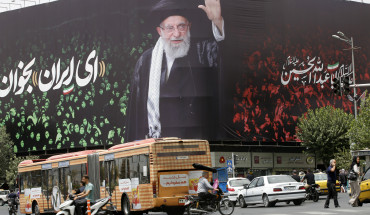The site lies at the heart of the struggle between Israelis and Palestinians for control of Jerusalem. The status of the city has proved a sticking point in efforts to reach a two-state solution to the conflict and al-Aqsa has become a symbol of the Palestinian quest for self-determination.
The mosque is “the most important religious site for Muslims in Palestine and it is absolutely central to Palestinian identity,” said Khaled Elgindy, a Palestinian affairs expert at the Middle East Institute.
“Every time a minister or a Knesset member or a member of an extremist settler group goes up to the al-Aqsa compound, they are eroding the status quo,” Elgindy said.
For Ben Gvir, who built his career on making inflammatory statements designed to provoke Palestinians, it’s politically expedient to break with the norm, Cohen said.
“Ben Gvir is the politician that has gained most from challenging the existing policy on Temple Mount,” Cohen said.
Now, he is no longer just a populist rabble-rouser but a cabinet minister with an expanded suite of powers over Israel’s security forces. The trip to the Temple Mount at the start of his tenure was likely intended to send a message “reminding Palestinians who’s boss” and possibly to trigger unrest that would give him “the pretext to crack down,” Elgindy said.











